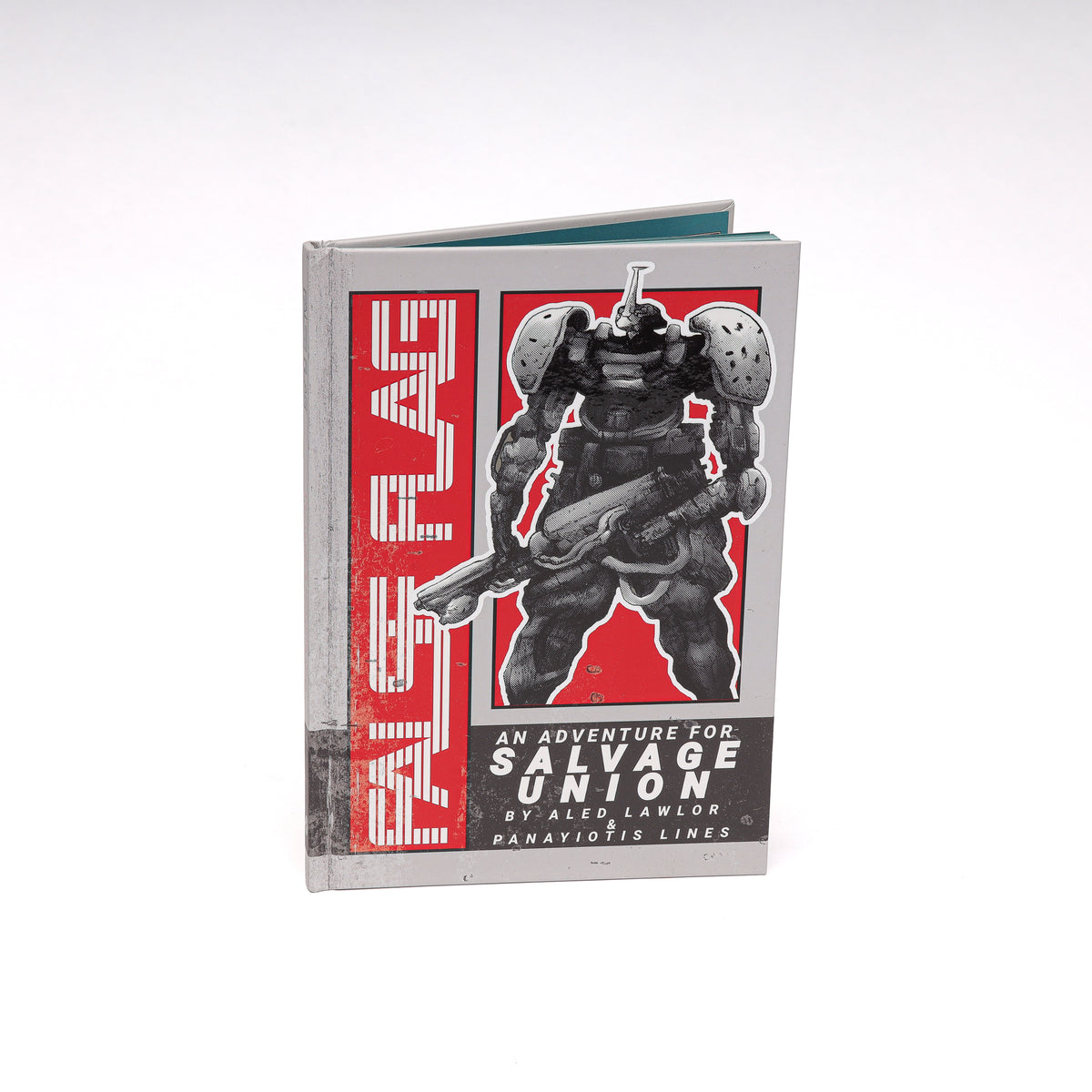'Mother May I' is a complaint, often thrown disparagingly at tabletop roleplaying games with simpler rules sets, that lean on 'rulings' based play, that play devolves into the players 'begging' the GM to let them do things in play.
Since rules don't exist to adjudicate play in lighter games, this can lead to inconsistency, for example in last weeks session Bob the Fighter got to roll to disarm an enemy and knocked the great sword out of the Temple Knights hand, but in this weeks session the GM decided that the disarming an enemy gives them a free opportunity attack, resulting in Dave the Fighter getting his head chopped off. This is also an example of potential favouritism in rulings based play, the GM's best friend is playing Bob the Fighter, so they subconsciously give them a better ruling than Dave who is a friend of a friend who has joined the game.
'Mother May I' play can also lead to players feeling like success in a game isn't earned by engaging with the mechanics, or even narrative, but earned by trying to twist the GM's to let them do something that will let them succeed in the game. This can cause a dissonance as the player has to rely on their ability to convince more than the ability of their character in the game.
Further to this 'Mother May I' play allows no depth to a game, since your mechanical interactions are limited based on GM whim then most of the time you're reduced to just using a 'basic attack' or trying to convince.
Therefore, the argument goes, tabletop roleplaying games need to have a robust set of rules and mechanics in order to ensure consistency during play, prevent GM favouritism and ensure players are able to engage with the gameworld fairly and with a wider degree of depth.
I believe 'Mother May I' is an issue far more in theory than in practice, during actual play that's thrown unfairly at games with simple rules set, implying they are arbitrary, or lack depth when this isn't the case. 'Mother May I' is in fact a positive feature of roleplaying games that allows them to have the depth and scope that they do.
As soon as you're playing any trad roleplaying game with a GM who has authority over what happens at the table, then you're handing both trust and narrative control to that person, irrespective of the density of the rules set you're playing. There are RPGs that are GM-less, or have shared narrative control such as Fiasco, Apocalypse World or FATE, however similar criticisms that such games are often based on fiat are levelled at them, as much as lighter trad games like Cairn, MÖRK BORG or Into the Odd. The latter tend to disperse the narrative authority among the table rather than putting it in the hands of one player, but in either respect a narrative decision is being made outside the bounds of the mechanics.
Potentiality of action is far more of a factor here than density of rules. If you're playing a boardgame like Settlers of Catan you can't decide to muster a militia and attack your village, it's not in the rules. In a trad roleplaying game a player can just describe what they want to do, and the GM will adjudicate it.
The GM is the one who gets to say when you roll the dice, gets to determine how difficult the roll is (choosing difficulty class for example), and decides on how all of the rules in the game are applied. To take the example of disarming an enemy in a crunchy system, where the rules for disarming are robust, a GM could still decide to not let you roll disarm, decide your opponent has a +10 bonus against disarm, decide that since you described your disarming so well you get a +5 bonus to your roll, and likewise has control over all of the other environmental factors. Maybe the sun's glinting in your eyes making it difficult for you to perform your manoeuvre, maybe it's raining, and you'll slip up trying to do a complex combat manoeuvre on a bad roll. Any of this is just as much 'Mother May I' as the GM in a lighter rules set making a disarm ruling.
Likewise no rules set can cover every possible rule and at some point the GM will have to make a ruling. Let's imagine the crunchy system is confused as to what to do when disarming an enemy that has multiple limbs, like a 6 Armed Snake Warrior, the GM may decide it doesn't work, or that it's harder to perform, or that the enemy gets more attacks against you when you attempt to disarm and so on. Or perhaps the player wants to use their disarm ability on a mechanical trap statue holding a spear that it throws towards anything that moves in the room, the rules say disarm only affects creatures, and the statue is technically an inanimate trap. The GM could just say no, but they might just say it works, or it works but your weapon might be damaged in the process and so on.
In any respect the GM is the one deciding on how these situations are resolved. The basis of lighter rules sets is that the GM and the rules should exist to provide a supportive structure to play, rather than an exhaustive list of mechanics as there's a level of trust in the players that they can work it out for themselves.
The disarming example is also for combat which is one of the most easy thing to mechanise. What if you're trying to convince a retired war veteran, who has turned to alcohol, to give up the bottle and help you on a quest to the Sacred Mountain where he fought his last battle? You could just roll 'Charisma' or what not, but that feels a bit hollow, and still requires some level of context to decide what happens.
This is a nuanced game situation that requires some level of roleplay, maybe the players appeal to the veterans past glories and sense of duty, maybe they appeal to his family and the affect his drinking is having on them, maybe they help check him into the local Clerics rehab centre and wait for him to get clean, maybe they try tough love and just try to strong arm him into it. There's no obvious rule for how to adjudicate this, resolve it, and say what happens next. It's always going to be, to one degree or another, a GM call based on what the players come up with, because it's a roleplaying game and that's the fun at the heart of the game.
In respect to consistency, there is argument to be made that if you're engaging in organised play then a clear, consistent rules set is useful. I agree for a model such as DnD Adventurer's League that a more robustly structured experience does help to have a consistent rules set across multiple GMs running games, however such games tend to be limited in scope, often amounting to a series of linked combat encounters. Most players, even those who enjoy crunchier rules sets, still want an experience with greater scope than this, and with that you will run into the aforementioned situations where a GM will need to make a ruling one way or another.
Likewise if you play with the same GM they will still be able to offer consistency within the game they're running, even in a lighter rules set, and will have more freedom to do so. The advent of rules sets being updated by developers online means playing a crunchier rules set can lead to inconsistency too, if you're playing D&D 5e and WOTC release an update that changes the rules this will produce inconsistency in play experience between those who have adopted the new FAQ and those who haven't.
There's a fear at the heart of the complaint against 'Mother May I' that without a robust rules set a GM will abuse the authoritative position they have in the game. Whilst adding more and more rules to a game can feel like it provides a safety net to poor GM behaviour, it wont in actuality magically improve it or help engender any trust. A GM set out to screw over players will be able to do so in a crunchy system, and may have even more leeway to, as they have a pile of rulebooks they can decide to interpret however they wish. Whilst in a lighter game it becomes more obvious the GM is being a obtuse when they make a ruling designed to screw the players, as they can't pull the old 'its what the rules say' trick as easily.
A GM who isn't antagonistic will be fair when running the game, and work to engender trust in the players. A lighter rules set can provide such a GM a lot more breathing room to focus on running the game well, rather than worrying about the fiddly nature of the mechanics.
Which is to say, 'Mother May I' is good, actually.
If you've got this far, thanks for reading. As always I'd love to know your thoughts, feel free to comment below.





6 comments
Great points! I love rules-light games but I think crunchy rules do provide something worthwhile.
Crunchy rules differentiate characters from each other and actually from themselves at different stages of advancement. In rules-light systems like Fate Accelerated, all of the characters are differentiated by their aspects, approaches, and stunts but all things are possible for all characters, at least all physical things. Piloting a helicopter, for instance, is notoriously difficult to learn. In many rules-light games (F#, FAE, PDQ, Risus, and so on), any character could attempt it. The Fantasy Trip at least has a notion that some tasks cannot be attempted without training in a particular skill — but its skill list is closed, with no guidance for house ruling new skills.
Crunchy rules can allow characters to work together to open up options. In D&D 4e, a monk or warlord can move opponents on the map to group them together so that a controller can make an area attack. This can create memorable battle stories. Fate can try to approximate this with stacked advantages created during combat but I played fate games for over a decade and create advantage actions (maneuvers in Spirit of the Century) as the main alternative to attacking starts to feel a bit the same all the time.
There’s no perfect system but I think a combination of techniques might be better than just one or the other, like a system with a bit of crunch and also some rules-light mechanics, like aspects. Cypher seems like it might come close but I haven’t yet played it.
I have a problem with ‘Mother May I’ as it is antithetical to roleplaying. I would ask the question when it arises, why isn’t the player roleplaying to get the solution?
I think that you’ve pretty much nailed it. I’ve run and played in a lot of games over the years, and personally I’ve found that terms like “MMI” seem to primarily get thrown around by players who want to be the story to be about them specifically, or by players who know the system while others do not. This certainly isn’t always true, but my experience has certainly been shadowed by it. Personally I think that some players need more structure than others. Running a lot of rules light stuff I often find that many players are reactive rather than proactive. ‘I don’t know what I can do, and so I do nothing.’ IMO I think that every group is different, and therefore has different needs.
MMI isn’t a criticism specifically of games that have “light” rules, but rather games in which the GM’s authority supersedes that of the rules. Rules-light games have a certain tendency to leave the GM hanging – forced to make an arbitrary call based on random whim instead of following some time-tested principle. Experienced GMs don’t encounter this problem as much because they’ve built up principles in their mind (the so-called “invisible rulebook”) that they follow INSTEAD of just going with their whims and biases. But new GMs – or even experienced ones who are just, like, tired on that particular day – are liable to make bad calls.
Take two games for comparison – 5E D&D, and Apocalypse World. Pretty safe to say that D&D is the more “rules heavy” of the two, but look at how they introduce themselves to the GM. In the 5E DMG, the introduction says “The D&D rules help you and the other players have a good time, but the rules aren’t in charge. You’re the DM, and you are in charge of the game.”
That’s where MMI comes from. The new DM is told, outright: your decisions matter more than the rules.
Now compare that versus the Apocalypse World introduction to the MC, which says “There are a million ways to GM games; Apocalypse World calls for one way in particular. This chapter is it. Follow these as rules. The whole rest of the game is built upon this.”
Apocalypse World says: don’t just do whatever you want. FOLLOW THESE AS RULES. Apocalypse World explains to the GM how to run the game properly, and so even with zero experience, you can run a fantastic game just by following the instructions there. Basically, in making AW, the designer wrote down his own version of the “invisible rulebook” – but D&D and countless other games don’t do that. Instead they say, “this is Calvinball, there are no right or wrong answers”, and then the new GMs are confused when it turns out that there are LOTS of wrong answers, and only a few right ones. That’s MMI.
I am only one voice in this conversation, but my opposition to “Mother may I” exists purely in the context of new GMs or those who lack confidence in their ability to gauge balance, and particularly in the case of interesting content that is gated behind that qualifier. Often there are dozens of interesting rules, character options, subsystems, etc, that are only accessible via DM permission.
For a niche 5e example, did you know that in the base game (phb & dmg) there is an entire section on players working with the DM to create custom spells? Yet I have never seen, nor even heard tale of in any online forum, any player or DM make use of this segment of the rules. And why? Because the DM either understands that magic is strong but not why it is strong, because they think that player option are already too strong, or is too intimidating for a DM that doesn’t want to risk blowing up their campaign because they failed to carry a one. On the flip side players often don’t even try because the odds are tiny that the DM will actually let them make something more useful than what they already have access to, for the DM reasons listed above.
Naturally players can’t have the ability to decide this for themselves, but it’s indicative of my problem with “mother may I” content. More often than not it’s not actually used as a means of allowing difficult to balance concepts to work as a part of gameplay or story, but instead as a means to preemptively shooting down those ideas and forcing players back onto the intended path.
Martials being able to reliably plan their build around certain magic item options? No one discusses magic items outside of artificer because it’s entirely up to your GM. Skill checks being able to reliably perform tier relevant feats for the characters that specialize in them? NOPE, nearly all skills are locked to being relevant exclusively in tier 1 play at nearly all tables because it’s “unrealistic” for them to do more. The only exception is skills that GMs can easily imagine scaling up because it’s just the same thing in a different coat of paint, like persuasion, knowledge, or lock picking. And on it goes.
I fully acknowledge that the game fundamentally wouldn’t function without GM fiat, but while many people focus on the wrong aspects of the issue there IS merit to many of the complaints leveled against “mother may I”.
I think you’ve slightly misunderstood what ‘Mother May I’ means. A good example from 5e D&D is the wild magic sorcerer has a feature which the DM can choose to let you use. This is unlike basically any other feature in the game, and means that it varies wildly from table to table, but often ends up with it being completely unused due to the DM forgetting about it. There’s no reason that it shouldn’t have a codified way of using the ability that only relies on the player, this would be in keeping with the rest of the ruleset. The point isn’t against lighter games or heavier games, it’s about having abilities in a game that does have codified rules that don’t conform to that standard and instead are entirely dependent on the DM for their use